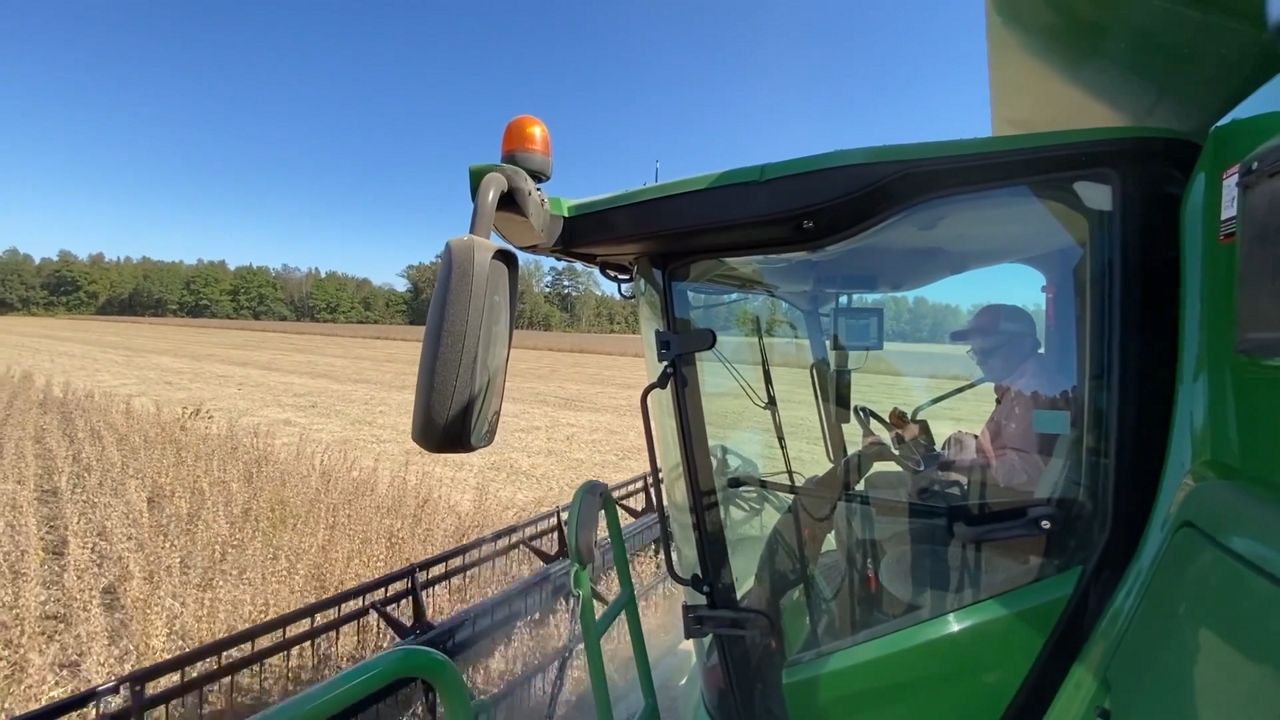WASHINGTON, D.C. — As the deadline for a new farm bill is rapidly approaching on Sept. 30, negotiations are being complicated by agriculture provisions unilaterally passed by Republicans in President Donald Trump’s One Big Beautiful Bill Act.
What You Need To Know
The massive tax cut and spending bill passed in July has been called a “mini-farm bill” because it addresses issues traditionally covered in the farm bill
Some Democrats may have little appetite to work with Republicans on a new farm bill after they unilaterally gutted nutrition assistance funding
The deadline to pass a new farm bill is Sept. 30
The massive tax cut and spending bill passed in July has been called a “mini-farm bill” because it addresses issues traditionally covered in the farm bill.
Ohio Republican lawmakers in rural districts said the law was a win for farmers.
“I talked to the farmers in the Second District and, and other places in Ohio, actually, that they’re thrilled with all the things that happened,” said Rep. Dave Taylor, R-Ohio. “Reference prices got addressed finally. There’s a ton of great expensing, deductions that they can do, 100% on a new production building, 100% on equipment, 100% on R&D. So that’s going to spur growth. The death tax [exemption] being made doubled and made permanent is going to make passing these family farms down a lot easier.”
“One of the things that’s crowded out prices for land… is solar panels that we’re paying massive subsidies. And President Trump put a cap on that so those subsidies won’t be paid out if the installation is going to go over fertile farm ground,” said Rep. Warren Davidson, R-Ohio. “That’s bidding up the price to, to just grow corn and soybeans here in Ohio, for example.”
The bill includes two major Republican agriculture policy priorities: increased subsidies for commodity crops and decreased funding for food assistance. Some farmers stand to benefit from the $59 billion allocated to farm safety net programs and subsidies for commodity crops such as corn and soybeans. But an $186 billion funding cut to the Supplemental Nutrition Assistance Program (SNAP) will result in less food being purchased from farmers.
The SNAP cuts come as several countries have levied retaliatory tariffs on U.S. crops in response to Trump’s new tariffs on their exports—resulting in lower crop prices.
“When you look at the retaliation, Ag has been targeted by China and others and certainly been affected,” Davidson said.
Lawmakers said a new farm bill was still needed, citing a challenging crop market and weather risks. Farm bill issues like crop insurance have not been updated since 2018.
However, unlike the reconciliation bill, a new farm bill would require Democratic support to pass. Some Democrats may have little appetite to work with Republicans after they unilaterally gutted nutrition assistance funding.
Others see a chance to add some Democratic priorities to a new farm bill, such as farm conservation funding.
“It just requires leadership to say we are going to put politics aside and get this thing done and onto the House floor. It is baffling to me that they haven’t got this done yet,” said Rep. Greg Landsman, D-Ohio.
The deadline to pass a new farm bill is Sept. 30. If lawmakers can’t reach a deal by then, they will likely repeat what they did last year: extend the 2018 farm bill another year.

